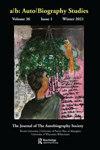桑科法的要求:黑人女性,数字方法,和档案转向
Q1 Arts and Humanities
引用次数: 0
摘要
本文探讨了数字空间中的档案转向——作者称之为“sankofa势在必行”——利用有色人种公约项目的工作,就黑人女性生活故事的恢复和组织努力提出了更广泛的问题。在一个数字化、数字化、数据库化的时代,一个集体的、分布式的复原历史模型,是否会改变学者们应对“大西洋奴隶制的暴力是如此之大,档案的限制是如此之绝对,以至于再多的历史复原也无法恰当地描述它,更不用说消除它的损害”这一争论的方式?正如《社会文本》(Social Text)特刊《复原问题:奴隶制、自由和档案》(the Question of recovery: slavery, Freedom and the archive)的编辑们所说的那样。当恢复方法超出模拟智力生产所要求的时间限制时,对奴隶制、黑人不自由及其后遗症的历史计算,以及与之相关的档案暴力,是否会产生不同的作用?打印格式的传统(或前数字)学术与非模拟时间轴有何不同?非模拟时间轴使额外的材料能够随着时间的推移而被恢复、上传和汇总?这篇文章探讨了可以将分散的黑人妇女档案和历史碎片拼凑起来的集体数字实践。本文章由计算机程序翻译,如有差异,请以英文原文为准。
Sankofa Imperatives: Black Women, Digital Methods, and the Archival Turn
Abstract This essay takes up the archival turn—what the author is calling the “sankofa imperative”—in digital spaces, using the work of the Colored Conventions Project to ask broader questions about the recovery of Black women’s life stories and organizing efforts. Does a collective, distributed model of recuperative history in a digital, digitized, database age change both the equation and the ways in which scholars grapple with the argument that “the violence of Atlantic slavery was so great, and the limits of the archive so absolute, that no amount of historical recovery could properly describe it, let alone undo its damage,” as the editors of Social Text’s special issue “The Question of Recovery: Slavery, Freedom and the Archive” put it? Do historical calculations of slavery, Black unfreedom and its afterlives, and their accompanying archival violence function differently when recovery methods extend beyond the temporal limits that analog intellectual production demands? How does conventional (or pre-digital) scholarship in print formats differ from non-analog timelines that enable additional materials to be recovered, uploaded, and aggregated collectively and over time? This essay examines collective digital practices that can piece together scattered Black women’s archives and historical shards.
求助全文
通过发布文献求助,成功后即可免费获取论文全文。
去求助
来源期刊

a/b: Auto/Biography Studies
Arts and Humanities-Literature and Literary Theory
CiteScore
0.80
自引率
0.00%
发文量
27
期刊介绍:
a /b: Auto/Biography Studies enjoys an international reputation for publishing the highest level of peer-reviewed scholarship in the fields of autobiography, biography, life narrative, and identity studies. a/b draws from a diverse community of global scholars to publish essays that further the scholarly discourse on historic and contemporary auto/biographical narratives. For over thirty years, the journal has pushed ongoing conversations in the field in new directions and charted an innovative path into interdisciplinary and multimodal narrative analysis. The journal accepts submissions of scholarly essays, review essays, and book reviews of critical and theoretical texts as well as proposals for special issues and essay clusters. Submissions are subject to initial appraisal by the editors, and, if found suitable for further consideration, to independent, anonymous peer review.
 求助内容:
求助内容: 应助结果提醒方式:
应助结果提醒方式:


